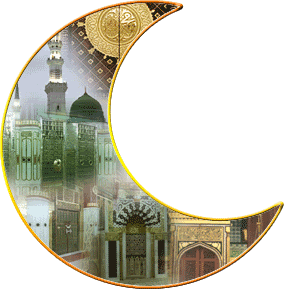
Recently, Cathy Lynn Grossman of USA Today wrote an article about Muslim zakat, wherein I was referenced as a "critic of Islam." She then followed up with another article titled "Critic questions the aims and ends of Islamic charity," dedicated to examining my views on zakat.
While I appreciate Ms. Grossman's initiative, what especially interests me is that her response exemplifies the problems originally highlighted in my article, "The Dark Side of Zakat: Islamic Charity in Context," which Ms. Grossman takes to task.
I had written: "From what American schoolchildren are being taught by their teachers to what Americans are being told by their presidents, concepts unique to Islam are nowadays almost always 'Westernized.'… [T]his phenomenon has resulted in epistemic (and thus endemic) failures, crippling Americans from objectively understanding some of Islam's more troublesome doctrines."
It is, therefore, a bit ironic that Ms. Grossman's entire article is a testimony to this phenomenon. For starters, even though I indicated Muslims are actually forbidden from bestowing zakat onto non-Muslims, her opening sentence stubbornly describes zakat as a "mandate to be charitable." Surely "charity" that discriminates according to religion cannot be deemed all that "charitable," a word that, in a Western context, is connotative of universal beneficence.
Ms. Grossman is also decided that Muslims engaged in that timeless Islamic phrase fi sabil Allah—most literally, "the path of Allah"—include "anyone from seminary students to imams to missionaries"; conversely, I supposedly read it "as a straight pipeline to violent jihadists."
Fair enough. Unfortunately, however, when it comes to the significance of Islamic terminology, neither her opinion nor mine matters much; how Islam's authoritative schools of jurisprudence (specifically, the four madhahib) have interpreted fi sabil Allah is all that matters. And Islam's juridical rulings are such that fi sabil Allah is synonymous with the concept of violent jihad.
For example, in its section on zakat, the Arabic-English edition of the standard legal text, 'Umdat as-Salik, translates fi sabil Allah as "those fighting for Allah." Next to the index entry for fi sabil Allah, it simply says "see jihad."
The following zakat-related anecdote from Islamic history is further illuminating: After Muhammad's death in 632, several Arab tribes, while still identifying themselves as Muslims, refused to pay zakat, much of which was being used to fund ongoing military operations. Abu Bakr, the first "righteous" caliph, responded by launching the Apostasy Wars, which claimed the lives of tens of thousands of Arabs. In this context, neither the uses of zakat, nor Abu Bakr's murderous response, seem very "charitable." (Who ever heard of killing people for not being "charitable" enough?) Read more here ...
Source: Middle East Forum




















